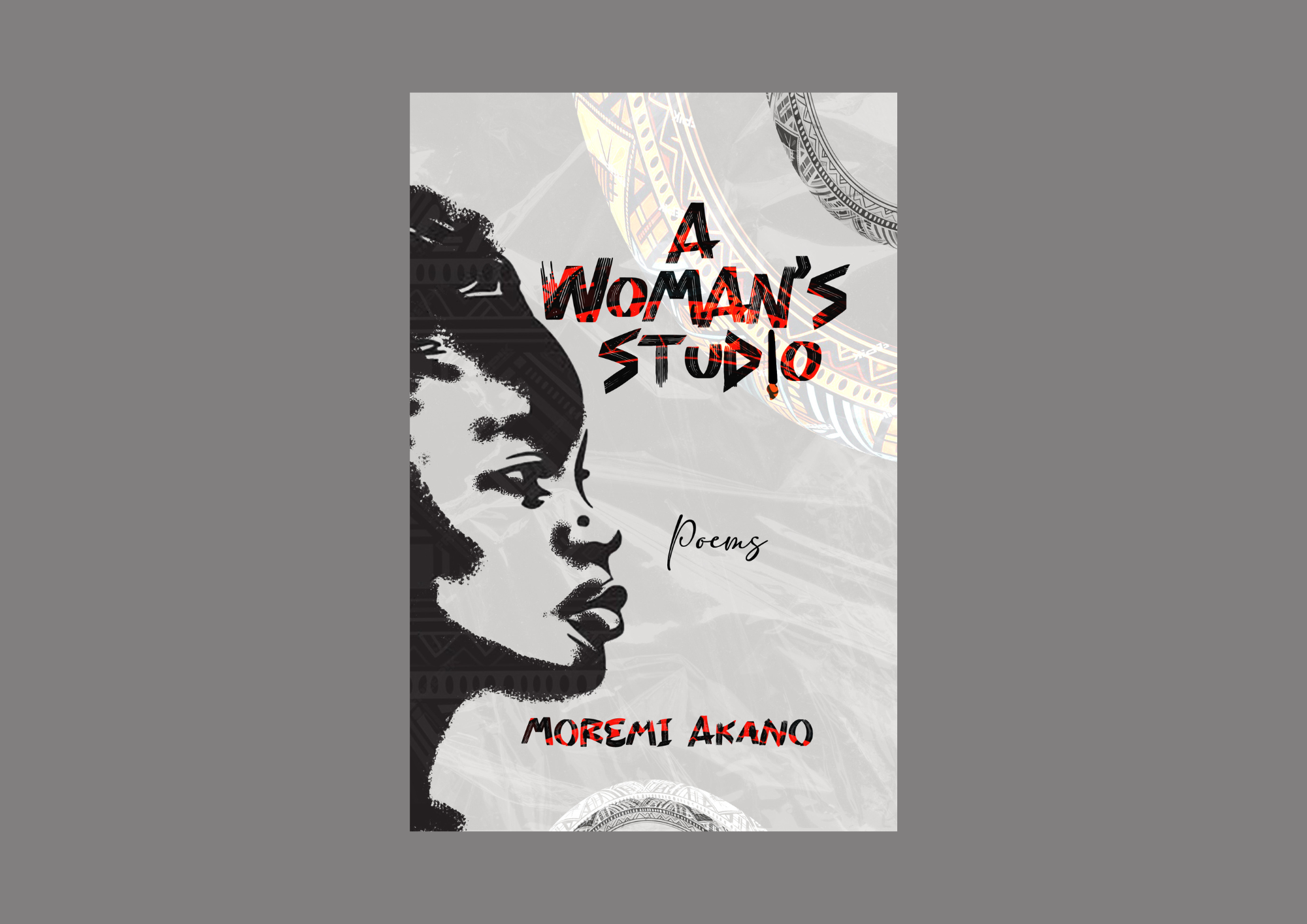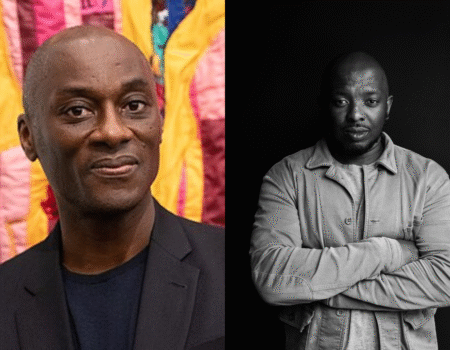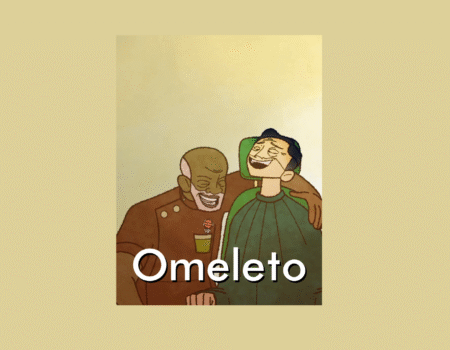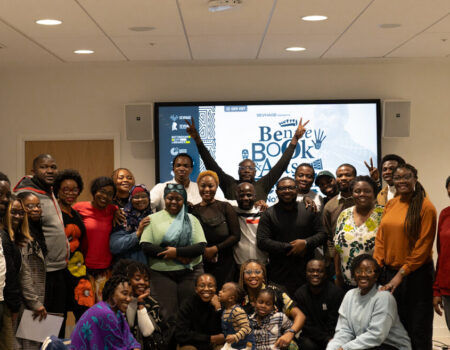There are storytellers, and then there are those who build altars with their storytelling, who understand that each spoken word, each televised moment, is a little monument to memory, to becoming, to the soft labour of visibility. Moremi Akano is of the latter kind. Moremi Akano’s work resists easy categorisation. She is at once a documentarian, cultural curator, business enthusiast, and poet. Her artistry is the kind that emerges when the everyday is observed with patience, and when the hustle is treated not merely as survival but as story. This is the space in which Moremi Akano works. This is a space where the camera is less an instrument of spectacle and more a vessel of attention; where women are not curated for commerce but invited to tell the shape of their lives as they are.
Akano’s two most visible offerings, “Business Savvy with Moremi” and “Ladies Talking Business”, sit comfortably at the crossroads of media, culture, and narrative art. But to call them simply ‘TV shows’ is to miss the point. These are not productions as much as they are acts of curation, of preservation, of witnessing. They are carefully framed testimonies of those who have dared to make something from nothing, who have folded dreams into fabric or fried hope into puff-puffs, and who now stand in front of her camera, ready to be seen. In tone, texture, and trajectory, they extend the language of television into the language of witnessing. Adding to this all is her latest dive into the world of poetry with her chapbook, A Woman’s Studio, a collection of compact, free-verse poems that read like an intimate study of the overlooked women who make, mend, and master worlds with limited means and near-limitless spirit.
Where many business-oriented talk shows opt for high polish and fast cuts, Akano’s approach is more grounded, even intimate. Having trained in Law but finding herself drawn to media, Akano did not wait for a broadcasting firm to open its doors to her. She took her history, of having once run a business without the visibility it deserved and turned it into a platform for others like her. The concept was deceptively simple: go to the spaces where business owners live and work, sit with them, laugh with them, and let their stories breathe. In essence, “Business Savvy with Moremi“, which she developed and produced independently, is filmed almost entirely on location: in kitchens, behind shop counters, on farmland, in makeup studios. The visual choices here matter. To locate the subject in her working space is to honour the geography of her story. This aesthetic choice at play deserves attention, because by filming on-site, Akano discards the gloss of the studio and opts for a visual grammar rooted in realism. The light is not always flattering. The background noise is rarely clean, but the stories ring true.
What makes BSM remarkable is not the format per se, but the texture. A lawyer-turned-farmer shares her vision of an agri-tourism hub in a way that feels like you’re sitting on a log beside her. A comedian recounts his first gig in church; borrowed suit, fake Adidas shoes, nerves held together with prayer. A baker speaks of the sweetness of hustle, not in platitudes, but with the sincerity of one who has known hunger. And through it all, Moremi listens. She leans into the pauses, coaxes laughter, permits vulnerability. In this way, one sees there is something of the griot in Moremi Akano, something of the oral historian who understands that you must go where the people are if you want to tell stories that matter.
If “Business Savvy” is a homegrown stew, “Ladies Talking Business” is the market square. It is broader in scope, glossier in finish, and comes with the bones of a more traditional studio production. Akano did not birth the show, but once invited in, she remade it in her own image. She redirected its gaze towards women, entrepreneurs navigating Nigeria’s shifting sands with grace, grit, and very little cushion. And here, too, the tone is one of empathy and ease.
The genius of Akano’s contribution to “Ladies Talking Business” is in how she made it breathe. She stripped away stiffness. She invited local dialects into the room. She let women tell their stories in their own voice; Yoruba cadences, Pidgin intonations, English inflections laced with hometown wisdom. In doing so, she shows how business, too, is a cultural performance. That the woman selling lace in Balogun Market has as much to teach us about strategy as any MBA graduate. That the languages we speak when we are most ourselves deserve a place in serious conversations.
One thinks of her interview with Mrs Bimbo Onakomaiya, a woman who is arguably a force in the insurance industry, who used the platform to not only explain the business of risk but to underscore the trust women build in spaces often hostile to them. Or Coach Nancy Nnadi, who went from sleeping in a one-room home with twelve siblings to building a multimillion-naira enterprise. In these moments, Akano goes beyond being a host to a midwife for narratives long overdue. In this light, there is an episode with Cosmas Maduka, one of Nigeria’s most enterprising entrepreneurs, which has become one of the most watched series of the “Ladies Talking Business” franchise. In putting him up, she helped demystify the man and his practice, in addition to giving needed motivation to people in the story and wisdom he shares.
In all, one sees that from the careful curation of guests and their stories, the way the shows are handled, there is a deliberate effort at creating an aesthetic that reveals much, teaches, entertains, and becomes an art that touches the heart of the listeners and watchers.
And yet, to speak of these shows only in terms of their guests is to miss the texture of the work itself, the narrative framing, the literary awareness, the quiet politics. You sense that Akano is as much a writer as she is a media producer. Her chapbook, A Woman’s Studio, confirms it. There, in verse that is spare and unflinching, she maps the same terrain her shows traverse: the unpolished studios of working women, the poetry of persistence, the tender power of being seen. “No one claps when she opens shop,” she writes. “But I see her. I bring the camera close.” The line could well be the mission statement for her entire oeuvre. Akano’s chapbook reads like an artistic extension of her media practice.
The poems in A Woman’s Studio reflect the same ethos that underpins those shows, which is a commitment to telling the stories of women whose wisdom is undervalued precisely because it is practical, vernacular, and rooted in the local. In this way, the chapbook performs a cultural archiving function, preserving oral histories and lived philosophies that would otherwise dissipate into silence.
In all, there is a temptation to see Akano’s work as simply a celebration of women. But that would be too narrow a frame. What she offers is more ambitious: a reimagining of how stories are told in African media. She insists on nuance. On depth. On dignity. In watching her work, in listening to her guests, in reading her lines, one begins to understand that visibility is not just about light. Sometimes, it is about silence. About creating the kind of presence that invites others to unfold. This flows into her poetry, and in the end becomes a full artistic and portrait in enterprise and culture that captures the essence of a people not always often seen.
And that, perhaps, is the truest measure of her art.
Hyginus Ekwuazi
An acclaimed multiple award-winning author, scholar, filmmaker and poet, Professor Hyginus Ekwuazi is a professor of broadcasting and film. Lately Vice Chancellor, Dominican University, Ibadan, Oyo State, Nigeria, he has taught at the University of Ibadan, and the Pan-African University, Lekki. He was the Pioneer Director, [NFI] National Film Institute, Jos and Former Director General, [NFC] Nigeria Film Corporation, Jos. He has been Lead Consultant/Trainer: World Bank-GEM Capacity Building for Nollywood and Multimedia Consultant, CHOGM: Commonwealth Heads of Government Meeting, Abuja, Nigeria, 2003.





